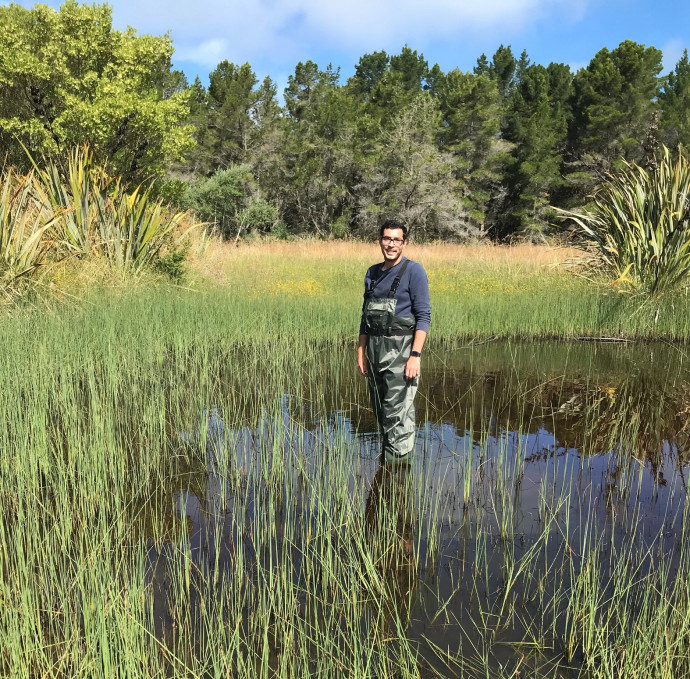Daniel Gomez Isaza

2022: Dr Daniel Gomez Isaza, University of Canterbury, has been awarded Rutherford Foundation Postdoctoral Fellowship for research entitled: ‘Thermal phenotypic plasticity of New Zealand fishes in response to increased thermal variability’
Global climate change is exposing animals to greater fluctuations in temperature and more extreme heatwave events. The twenty-first century has already experienced record-shattering temperatures. Cold-blooded animals including fishes, amphibians, reptiles, and invertebrates are especially vulnerable to temperature variation and are already experiencing increased mortality. To respond to extended temperature changes, many species undergo physiological changes in a process called thermal phenotypic plasticity modifying fitness-traits such as metabolism, activity, and reproduction. However, it is not well understood how species respond to increased thermal variability, particularly approaching physiological breakpoints.

Dr Daniel Gomez Isaza. Photo: supplied
Due to their unique geomorphology, the channels of braided rivers in Canterbury offer a unique “natural experiment” to test how thermal variability impacts species’ capacity for thermal phenotypic plasticity. Fish living in everchanging braided channels must contend with daily fluctuations in temperature between 5-10°C. In contrast, fish in nearby spring-fed channels experience yearlong temperatures varying only by about 1°C. Comparison of fish from these different environments will reveal how fish from braided channels are able to cope with variable temperatures.
Dr Gomez Isaza will study two taonga Māori fishes (alpine and Canterbury galaxias) from both stable (spring-fed) and variable (braided) river channels. He will test the hypothesis that fish inhabiting thermally variable environments show greater thermal phenotypic plasticity than fish inhabiting thermally stable environments by measuring key physiological traits. This work will be the first to assess how fishes in Aotearoa respond to temperature variability and will provide essential insight needed to effectively manage and conserve taonga species in a rapidly warming world.
